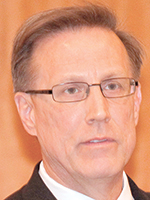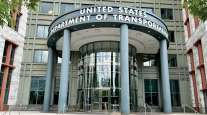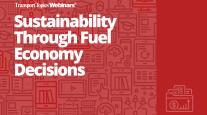Senior Reporter
Government Plans to Require Large Contractor Emissions Reports

[Stay on top of transportation news: Get TTNews in your inbox.]
Federal regulators have proposed a new climate-reporting rule that would require large federal contractors to publicly disclose their greenhouse gas emissions, climate-related financial risks and science-based emissions reduction targets.
The new proposal, known as the Federal Supplier Climate Risks and Resilience Proposed Rule, would amend the Federal Acquisition Regulation (FAR). It was jointly announced Nov. 14 by the Department of Defense, General Services Administration and NASA. The agencies are proposing adding the climate reporting as a revision to the FAR, which governs federal contractors.
The new proposal also comes just months after the U.S. Securities and Exchange Commission proposed a similar rule that is limited to public companies and not as far-reaching.
The federal government is the world’s single largest purchaser of goods and services, spending more than $650 billion in contracts in fiscal 2020 alone, according to the announcement.
The new proposal provides a targeted, risk-based approach by focusing primarily on major federal suppliers. The largest supplier category includes federal contractors receiving more than $50 million in annual contracts, and contractors with more than $7.5 million but less than $50 million in annual contracts.
“Public procurement can shift markets, drive innovation and be a catalyst for adoption of new norms and global standards,” the proposal said.
The new FAR climate provision is a “multipronged” effort by the three agencies to collect and put climate data into the public domain, according to Glen Kedzie, American Trucking Associations’ energy and environmental counsel. “There’s a lot of fleets that rely on federal contracts.”

Kedzie
The agencies are accepting comment on the proposed amendment to the FAR regulation through Jan. 13.
Contractors doing less than $7.5 million in federal government business would be exempt from the reporting requirement.
The largest contractors would be required to publicly disclose “Scope 1, Scope 2 and relevant categories of Scope 3 emissions, while those with contracts between $7.5 million and $50 million in federal business would only be required to disclose Scope 1 and 2 category emissions.
Scope 1 emissions are direct GHG emissions from sources that are owned or controlled by the reporting entity, while Scope 2 emissions are indirect GHG emissions associated with the generation of electricity, heating and cooling, or steam, purchased or acquired for the reporting entity’s own consumption, but are owned or controlled by another entity.
Scope 3 emissions are those that are a “consequence of the operations of the reporting entity but occur at sources other than those owned or controlled by the entity,” according to the proposal.
There are 5,766 so-called “significant and major contractors” among the more than 491,000 entities registered to do business with the federal government, according to the Federal Register post. Approximately 671 of the 964 largest or “major contractors” currently do not publicly disclose information about their emissions or reduction goals, according to the proposal.
A science-based target is a target for reducing GHG emissions that is in line with reductions that the latest climate science deems necessary to meet the goals of the Paris Agreement to limit global warming to well below 2 degrees Celsius (or 28.4 degrees Fahrenheit) above pre-industrial levels and pursue efforts to limit warming to 1.5 degrees C (34.7° F).
Want more news? Listen to today's daily briefing above or go here for more info
While the SEC proposed rule did not include a requirement for SEC registrants to set science-based targets, it did propose that SEC registrants disclose targets if they have adopted one.
The SEC proposed rule change, first announced in March, would require registrants to include certain climate-related disclosures in their registration statements and periodic reports, including information about climate-related risks that are reasonably likely to have a material impact on their businesses.
The SEC received more than 10,000 written comments on the proposal, many of them critical, coming from a variety of entities including big and small investors, business groups, environmentalists, bankers, think tanks, U.S. senators, professors, real estate agents, universities and even a high school student.




